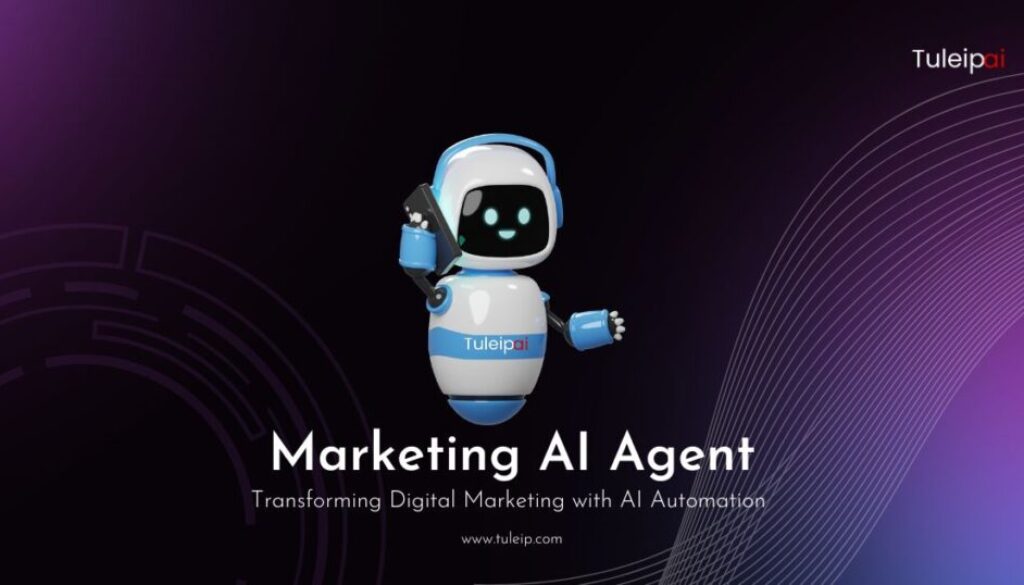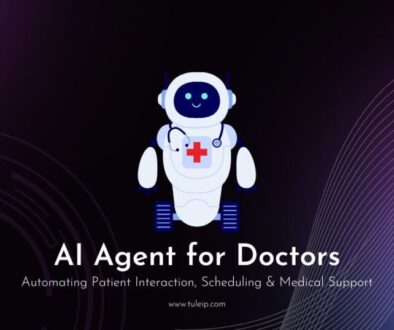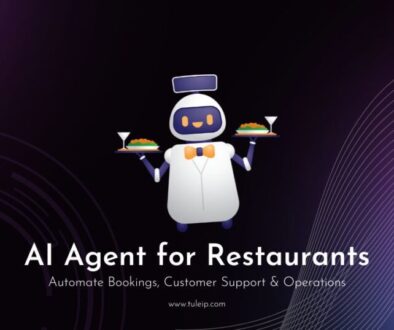Marketing AI Agent: Transforming Digital Marketing with AI Automation
Introduction
The digital marketing landscape is evolving rapidly, with businesses increasingly relying on AI-powered solutions to streamline operations, enhance customer engagement, and improve ROI.
A Marketing AI Agent is an intelligent, automated AI system that assists marketers in campaign management, content creation, audience analysis, and customer interactions—ultimately driving better engagement, conversions, and business growth.
In this blog, we’ll cover:
✔️ What a Marketing AI Agent is and how it works
✔️ Key benefits for businesses and marketers
✔️ Real-world applications and use cases
✔️ How to implement AI in marketing strategies
✔️ Best practices for maximizing AI-driven marketing performance
Let’s explore how AI-powered marketing agents are redefining the industry. 🚀
What is a Marketing AI Agent?
A Marketing AI Agent is an AI-powered digital assistant that automates, optimizes, and enhances various marketing tasks using:
✅ Machine Learning (ML): Analyzes past campaign data to predict future trends.
✅ Natural Language Processing (NLP): Generates content, automates responses, and personalizes interactions.
✅ Data Analytics & Insights: Processes large datasets to extract meaningful marketing intelligence.
✅ Conversational AI: Powers chatbots and virtual assistants for customer engagement.
✅ Marketing Automation: Automates repetitive tasks like email marketing, social media scheduling, and ad optimization.
💡 Example: A Marketing AI Agent can analyze customer behavior, create targeted email campaigns, suggest the best content strategies, and even run A/B testing—all without human intervention.
How Does a Marketing AI Agent Work?
A Marketing AI Agent operates through five key stages:
1. Data Collection & Analysis
📌 The AI gathers and analyzes marketing data from:
✔️ Social media platforms
✔️ Website traffic and user behavior
✔️ CRM databases and customer interactions
✔️ Advertising campaigns and performance metrics
2. Audience Targeting & Segmentation
📌 Using AI-driven predictive analytics, the agent:
✔️ Segments users based on demographics, behavior, and preferences
✔️ Identifies high-converting customer personas
✔️ Suggests targeted marketing strategies for different audience groups
3. Content Generation & Personalization
📌 AI-powered marketing tools generate optimized content, including:
✔️ Blog posts, product descriptions, and social media captions
✔️ Email marketing campaigns with personalized subject lines
✔️ AI-generated ad creatives and copywriting suggestions
4. Marketing Automation & Campaign Execution
📌 The AI agent automates and optimizes marketing activities such as:
✔️ Social media scheduling with AI-driven recommendations
✔️ Ad campaign optimization to improve engagement and reduce costs
✔️ Chatbots for real-time customer interactions and lead nurturing
5. Performance Monitoring & Continuous Improvement
📌 The AI agent monitors marketing performance in real time:
✔️ Provides automated reports and analytics
✔️ Adjusts strategies based on real-time campaign feedback
✔️ Uses AI-driven A/B testing for ad and content optimization
Why Businesses Need a Marketing AI Agent
💡 Research by McKinsey shows that AI-powered marketing strategies can increase marketing efficiency by up to 30% and boost revenue growth by 20%.
Key Benefits
✔️ Time & Cost Efficiency: AI automates repetitive marketing tasks, reducing manual effort and operational costs.
✔️ Improved Customer Engagement: AI-driven personalization enhances user experience and brand loyalty.
✔️ Data-Driven Decision Making: AI provides accurate insights for better marketing strategies.
✔️ Higher Conversion Rates: AI optimizes marketing campaigns, increasing ROI and sales.
✔️ Scalability & Consistency: AI ensures consistent branding across all platforms while managing multiple campaigns simultaneously.
✅ Industries Benefiting from AI Marketing Agents:
✔️ E-commerce & Retail – AI-driven product recommendations and abandoned cart recovery.
✔️ SaaS & B2B Marketing – Lead scoring, email automation, and AI-powered customer insights.
✔️ Healthcare & Pharma – AI-generated content for patient education and health campaigns.
✔️ Real Estate – AI-powered lead nurturing, chatbot-driven property inquiries.
✔️ Finance & Banking – Personalized financial product recommendations and AI-assisted customer service.
How to Implement a Marketing AI Agent in Your Business
🚀 Step-by-Step Guide:
1. Define Marketing Goals
✔️ Identify which marketing processes to automate.
✔️ Set clear objectives for AI-powered audience targeting, content creation, or campaign optimization.
2. Choose the Right AI Marketing Platform
📌 Best AI Marketing Tools & Platforms:
✔️ ChatGPT & Jasper AI – AI-powered content creation & marketing copywriting.
✔️ HubSpot Marketing Hub – AI-driven CRM & email automation.
✔️ Adobe Sensei – AI for ad targeting & creative automation.
✔️ Google AI for Ads – AI-powered PPC campaign optimization.
✔️ Drift & ManyChat – Conversational AI & chatbot marketing.
3. Train & Customize AI Algorithms
✔️ Upload historical marketing data to help AI learn customer behavior.
✔️ Train AI models to recognize brand tone, audience sentiment, and engagement patterns.
4. Integrate AI Across Marketing Channels
✔️ Connect AI tools with social media, CRM, email marketing platforms, and website analytics.
✔️ Ensure seamless integration with Google Analytics, Facebook Ads Manager, and automation tools.
5. Monitor, Analyze & Optimize
📊 Track AI performance metrics:
✔️ Engagement rates, CTR, and conversion metrics.
✔️ AI-generated content performance vs. human-created content.
✔️ AI-driven campaign ROI and cost efficiency.
Best Practices for AI-Driven Marketing
✅ Use AI-Powered Personalization: Customize campaigns based on user behavior and preferences.
✅ Automate Marketing Funnels: AI should handle lead nurturing, email follow-ups, and ad retargeting.
✅ Optimize AI Chatbots for Engagement: Ensure chatbots respond naturally & enhance customer interactions.
✅ Leverage Predictive Analytics: Use AI insights to forecast marketing trends & customer needs.
✅ Maintain Human Oversight: AI should assist, not replace, human creativity and strategic decision-making.
Future of AI in Marketing
📢 AI-driven marketing agents are evolving rapidly, shifting from automation to intelligent decision-making.
Upcoming AI Marketing Trends:
🚀 Hyper-Personalization – AI-driven dynamic content tailored for each user.
🧠 AI-Powered SEO & Content Optimization – AI will enhance search rankings with real-time content suggestions.
🔄 Autonomous AI Marketers – AI will run entire campaigns with minimal human intervention.
📊 AI-Powered Sentiment Analysis – Brands will use AI to analyze customer emotions in real-time.
AI-powered marketing agents aren’t just the future—they’re already transforming businesses today!
Final Thoughts
A Marketing AI Agent is an essential tool for businesses looking to scale marketing efforts, enhance personalization, and drive higher conversions.
✔️ Automates marketing workflows
✔️ Personalizes customer engagement
✔️ Optimizes campaigns for better ROI
💡 Ready to supercharge your marketing with AI? Start leveraging a Marketing AI Agent today! 🚀
FAQs
💡 What is the best AI tool for marketing automation?
✔️ HubSpot, Jasper AI, Google AI for Ads, and Drift are top choices.
💡 Can AI replace marketing teams?
✔️ AI enhances efficiency but human creativity & strategy are still crucial.
💡 How does AI improve ad targeting?
✔️ AI analyzes customer data & behavior to optimize ad placements & budgets.
🚀 Have more questions? Drop them below!
#MarketingAI #AIAgent #MarketingAutomation #ConversationalAI #DigitalMarketing #AIForMarketing #MarketingTechnology #ArtificialIntelligence #GrowthMarketing #AIPoweredMarketing #CustomerEngagement #AIAdvertising
✔️ Marketing AI Agent
✔️ AI for Digital Marketing
✔️ AI-Powered Marketing Automation
✔️ AI Marketing Assistant
✔️ AI for Ad Optimization
✔️ AI Chatbot for Marketing
✔️ Predictive Analytics in Marketing
✔️ AI-Powered Customer Engagement
✔️ AI SEO and Content Optimization
✔️ AI-Driven Email Marketing



